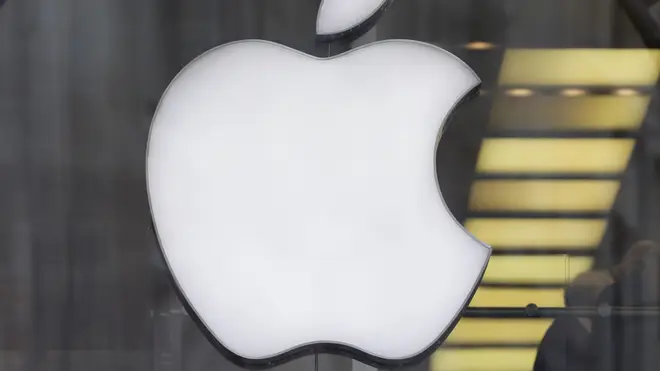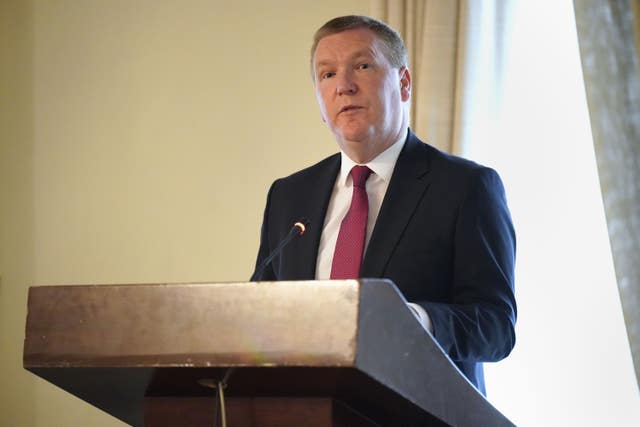
Nick Abbot 10pm - 1am
9 November 2023, 07:24

The advocate general at the European Court of Justice is to issue an opinion about whether Apple should pay more than 13 billion euro in back taxes.
EU lawmakers are awaiting an announcement which is seen as major step in the drawn-out dispute over tax arrangements between technology giant Apple and Ireland.
The advocate general at the European Court of Justice is to issue an opinion on Thursday morning about whether Apple will be forced to pay more than 13 billion euro in back taxes to Ireland.
While the opinion of the advocate general is non-binding, it is usually followed by the court and therefore could have significant implications for corporation tax bills.
Ireland had fought the European Commission over the matter due to concerns over an intrusion on Irish sovereignty and potential impacts to investment in the country.
In 2016, following an EU investigation which launched in 2014, the commission concluded that Ireland gave undue tax benefits of 13.1 billion euro to Apple, which is illegal under EU state aid rules.
The commission said that tax rulings issued by Ireland to Apple in 1991 and 2007 substantially and artificially lowered the tax paid by the iPhone manufacturer in the country since the early 90s, in a way which did not correspond to economic reality.
As a result, competition commissioner Margrethe Vestager said Ireland had granted illegal tax benefits which enabled it to pay substantially less tax than other business over many years.

The investigation found that Apple had paid an effective corporate tax rate of 1% on its European profits in 2003, down to 0.005% in 2014 – 50 euro for every one million euro of profit.
The process involved recording almost all sales profits of two Irish incorporated companies, which the commission said only existed on paper.
The companies, fully owned by Apple, held the rights to use the firm’s intellectual property to manufacture and sell its products outside North and South America.
The commission said this situation allowed Apple to avoid taxation on almost all profits generated by sales of its products in the entire EU single market.
It said this was due to Apple’s decision to record all sales in Ireland rather than in the countries where the products were sold.
The findings were disputed by the Irish State – which said all tax owed had been collected – and Apple, which had come under scrutiny in the US for its tax practices years earlier.
At the time, Apple’s chief executive, Tim Cook, branded the EU findings as “political crap”, maddening and untrue.
The Irish Government, which was also used to defending a comparatively low 12.5% corporation tax rate, said Europe had overstepped the mark in attempting to dictate tax laws and enforce retrospective taxes decades later.
Ireland and Apple fought the commission on the matter and in July 2020, the General Court of the European Union annulled the decision.
However, the commission subsequently appealed the decision to the European Court of Justice with Ms Vestager saying the lower court’s ruling contained “errors of law”.

The European Court of Justice’s advocate general is to give a legal opinion on the dispute ahead of the court’s final decision.
That decision is expected next year and will have significant implications for how member states grant tax breaks to major firms.
Apple has argued it has been paying tax on the profits in question in the US, while Ireland has seen it necessary to defend its reputation on taxation issues to protect foreign direct investment.
Last weekend, Finance Minister Michael McGrath said the advocate general’s opinion will be “significant” but added it is not the final step in the process.
Mr McGrath said: “We are confident in our position in respect of the Apple case. We take encouragement from the findings they have made so far, but it is a significant day.”
He added: “There was no sweetheart deal. This was the application of Ireland’s statutory corporation tax code.”
In the interim, the 13.1 billion euro has been held in an escrow fund pending the outcome of the case.
The money, with interest, is due to be entered into the Irish exchequer if the commission wins the case.
However, other member states may make claims that they are owed some of the money.
If the commission loses the appeal, the large sum will be returned to Apple.